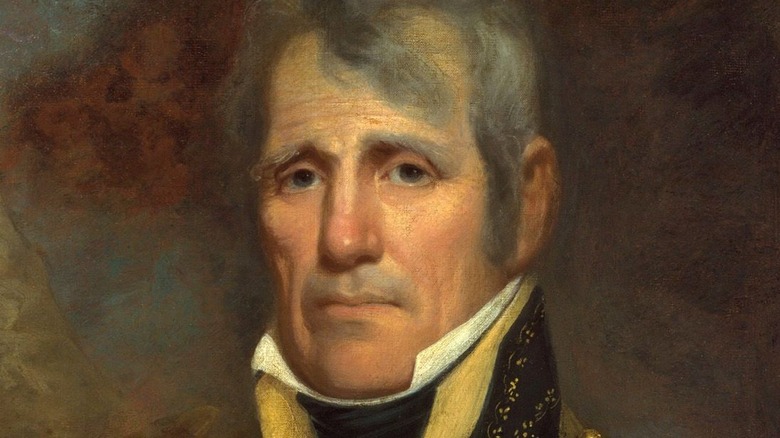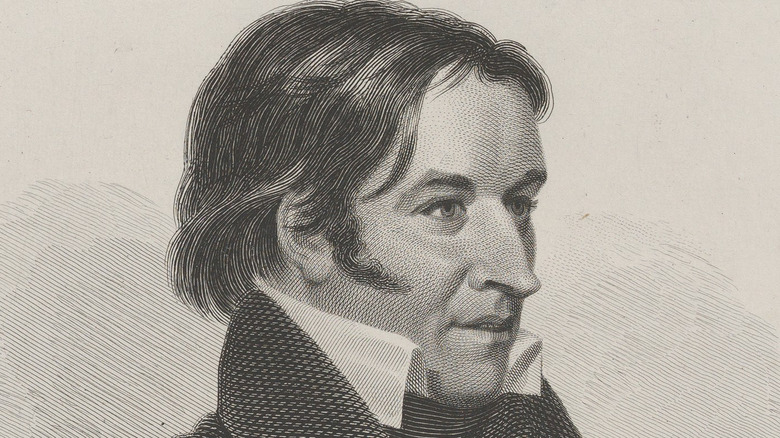Inside The Feud Between Davy Crockett And Andrew Jackson
Andrew Jackson was one president you didn't want to cross. The guy had a mean streak, and he was never one to back down from a fight, even in the most dire of circumstances. As Jackson's Pulitzer Prize-winning biographer Jon Meacham noted in "American Lion," Jackson once killed a man over an argument about a horse race. He and Tennessee native Charles Dickinson lined up for a duel on May 30, 1806. Dickinson was actually a quicker draw than Jackson, hitting the future president square in the chest. But Jackson didn't go down. Instead, he aimed at Dickinson and pulled the trigger. After some trouble with the trigger getting stuck, Jackson finally got the shot off and killed his opponent. He later bragged to a friend that he would have killed Dickinson even "if he had shot me through the brain."
Dickinson wasn't the only Tennesseean with whom Jackson had beef. According to Mental Floss, despite enjoying widespread popularity among the citizenry of the Volunteer State, he had an ardent enemy in Davy Crockett. The coonskin hat-sporting legendary outdoorsman was a vocal opponent of Jackson's 1830 Indian Removal Act. The pushback from the president had disastrous results for Crockett's political career.
Andrew Jackson bullied Davy Crockett out of politics
Crockett had been elected to represent western Tennessee in the U.S. Congress in 1827, but neither the president nor Crockett's constituents were too happy with the cause he championed in the federal legislature. Western author Carl Dane considers Crockett's vocal opposition to the Indian Removal Act an admirable cause, but notes how this was not the prevailing sentiment at the time.
But Crockett always stuck to his guns, both literally and figuratively. Concerning the legislation, he said, "I believed it was a wicked, unjust measure and that I should go against it, let the cost against me be what it might."
The position did cost him his political career. He lost to the presidentially backed William Fitzgerald when he was up for reelection in 1831. Crockett made a final appearance in Congress in 1833 on an anti-Jacksonian ticket, but the return was short-lived. After that term he left his native Tennessee after uttering his most famous quote: "You may all go to hell, and I will go to Texas."

